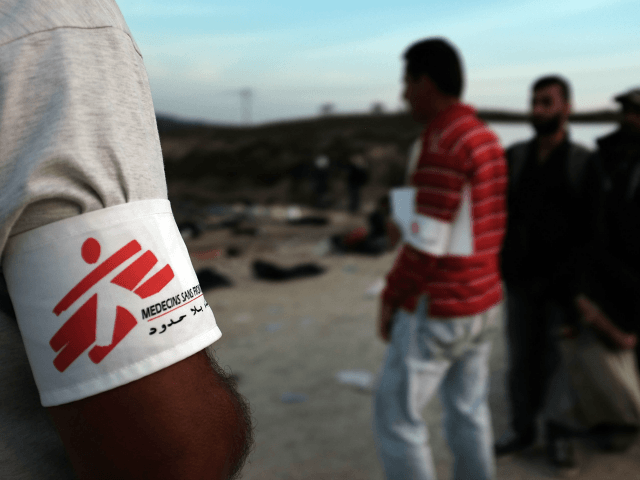GENEVA, June 17 (Reuters) – Medical aid charity Médecins Sans Frontières (MSF) said it will reject all funding from the European Union and its member states in protest at a deal to stem the influx of migrants and refugees that the EU reached with Turkey.
Under the deal, struck in March to cut off a human tide that brought a million refugees and migrants to Europe in 2015, Turkey agreed to halt illegal migration through its territory in return for financial and political rewards.
Jerome Oberreit, MSF’s International Secretary General, said the agreement went against the fundamental principles of providing assistance to people in need.
“This is jeopardising the very concept of the refugee,” he told Reuters in an interview on Friday.
Oberreit said MSF, also known as Doctors Without Borders and active in disaster zones across the world, will lose 37 million euros (29.13 million pound) of funding from EU states and 19 million euros from EU institutions.
In the short term it would cover the shortfall from emergency reserves.
“It’s really important to see the real people instead of the political football that they have become,” he said. “We’re talking about Europe’s refugee shame.”
European Commission spokesman Margaritis Schinas said MSF was not an implementing partner of EU humanitarian aid in Turkey and MSF’s decision would not affect life-saving EU humanitarian aid for refugees in Turkey or MSF’s operations that currently get EU funding.
“As to …the legality of the EU-Turkey agreement, the Commission prefers the interpretation of our 28 member states… and of the United Nations that are closer to our analysis of the deal rather than the one MSF did today.”
Many EU officials acknowledge privately that the measures taken to curb migration have stretched the limits of legality but they also defend the strategy as a political imperative driven by European voters who have made clear their unwillingness to accept large numbers of migrants.
Oberreit said the deal with Turkey did nothing to address the chronic deficiencies of EU policy, but simply outsourced European obligations.
It also set a precedent that risked triggering a global domino effect as other countries also turned their backs on their obligations. “It’s clearly sending a message that caring for people forced from their homes is optional, that you can buy your way out.”
The EU was in talks for similar deals with 16 other countries “with the single goal of denying people their right to asylum”. The talks include Eritrea, Somalia, Sudan and Afghanistan, four of the biggest sources of refugees, he said.
“This would potentially mean locking people into war zones or places where they face persecution.”
Kenya has also cited the EU-Turkey deal as a justification for its plans to close the world’s largest refugee camp. “This would involve …sending 330,000 people back into Somalia, a country at war,” Oberreit said.
MSF gets 92 percent of its funding from private donations, Oberreit said.
(Reporting by Tom Miles, additional reporting by Philip Blenkinsop and Alastair Macdonald in Brussels; editing by John Stonestreet)

COMMENTS
Please let us know if you're having issues with commenting.